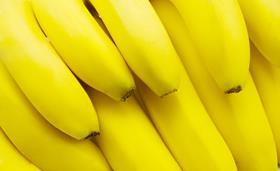
Volume sales of bananas are going through the roof in Europe, but returns are hitting new lows in what is an alarming trend for producers.
Analyst Carolina Dawson of French research centre Cirad told the International Banana Congress in Miami that Europe has seen extraordinary growth in banana imports of over 20 per cent in the past decade to 6.5 million tonnes of fruit. All of the key suppliers to Europe have grown sales, with Ecuador’s exports up 17 per cent to 1.6mt in 2018 compared to the 2015-17 average, Colombia’s have risen four per cent to 1.4mt and Costa Rica’s are up 13 per cent at 1.2mt. Other big increases came from Honduras (+111 per cent), Nicaragua (+92 per cent) and Guatemala (+60 per cent).
Those figures have helped European per-capita consumption rise to almost 13kg per year. But despite describing the EU as breaking “record after record” in terms of banana trading, Dawson warned: “There’s ongoing growth which seems very positive, but despite that growth there’s a recurring crisis of low prices.”
Indeed, Dawson had some sobering statistics highlighting diminishing returns to suppliers. “In 2018 we saw something new. There was a good start to the year in terms of the economic result, but an unexpected crisis started in spring as the prices dropped and didn’t recover by the end of the year,” she explained. “2018 was the worst year, with the annual price [averaging] below €12 per box.”
Last year’s average price of €11.90 represents a considerable decline on the high of €14.06 seen in 2015, and is below every year in the last decade. While certain production flushes have occasionally pushed returns down, the main factor has been supermarket discounting.
Organics could be an area to provide better value to producers, with organic bananas now having a 10 per cent share of the grocery market in Europe. However Dawson warned that prices are also under pressure in organics, citing the example of a French supermarket that this week advertised all of its bananas as organic - but is selling them at the same price as conventional fruit.






No comments yet